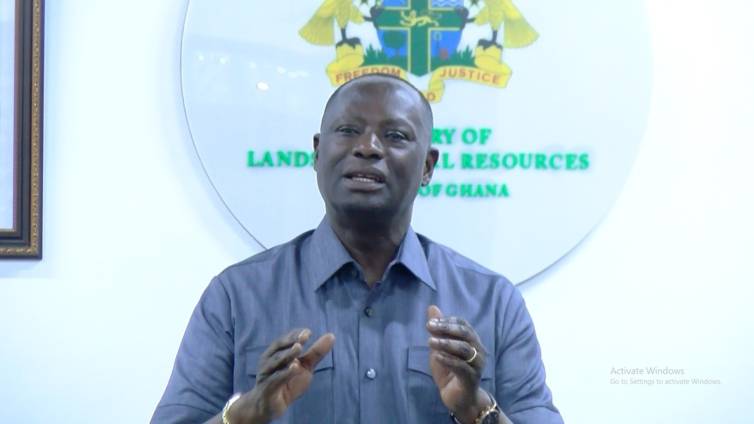Tension at the Abosso Gold Fields Damang Mine has been defused, at least for now, following a strong reassurance from Ghana's Lands Minister, Emmanuel Armah-Kofi Buah. Addressing over a thousand anxious workers after the mine’s operating licence expired, the Minister offered a lifeline, confirming that their jobs would remain secure despite the government’s decision to take over operations.
The visit came on the heels of growing unrest sparked by the failed licence renewal that left the future of the mine hanging in the balance. Fears of mass layoffs spread quickly among the workforce, triggering threats of protests and drawing the attention of national labor unions. But the Minister’s words were clear—there would be no job losses during this critical transition. He emphasized the President's firm commitment to safeguarding the livelihoods of all employees, including contractors and subcontractors.
In a statement filled with both conviction and empathy, Mr Buah underscored that the government’s move was not meant to destabilize the company but rather to ensure continuity and empower the local community. “We are going to work with them to ensure the safety and sanctity of the plants and operations,†he said, calming nerves and restoring hope among the workers.
Despite the government’s assurance, the Ghana Mine Workers’ Union is standing firm in support of potential demonstrations. Its General Secretary, Abdul-Moomin Gbana, warned that any missteps could lead to dire economic consequences, noting that the government must think twice before risking over a thousand jobs. Gbana stressed the human cost behind the numbers, pointing out that such a decision would ripple through families and local economies.
Meanwhile, the Deputy CEO of the Minerals Commission, Isaac Tandoh, has shed light on why the licence renewal failed in the first place. According to him, Gold Fields did not follow the proper renewal procedures and instead chose to communicate through letters rather than direct engagement. This misstep, he argued, forced the government’s hand.
Tandoh also criticized the company’s recent behavior, claiming that instead of reinvesting profits into Ghana’s mining sector, Gold Fields redirected its earnings to international acquisitions. He pointed to recent purchases in Canada and Chile as proof that funds generated in Ghana were being used to grow foreign portfolios, leaving the Damang Mine underdeveloped.
Highlighting this imbalance, Tandoh revealed that the mine raked in over $600 million in profits last year alone, questioning how much of that benefited the local economy. He accused the company of focusing mainly on processing stockpiles rather than engaging in actual mining, effectively reaping rewards with minimal local investment.
However, the government insists it is not against foreign investors. The message is clear: Ghana welcomes international partnerships but demands accountability and mutual benefit. Preferential treatment, such as the tax and fuel waivers previously granted to Gold Fields, must come with a commitment to national development.
As the dust settles on this evolving situation, all eyes are on the government and Gold Fields to see how the transition will unfold. For the workers and their families, the hope remains that promises made will translate into long-term stability and growth.




No comments yet
Be the first to share your thoughts!